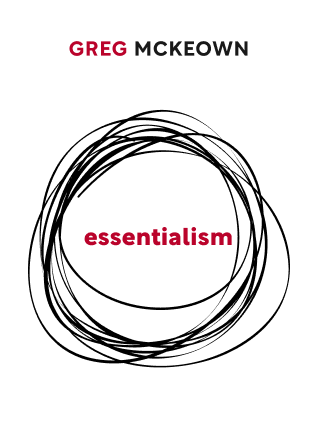

This article is an excerpt from the Shortform book guide to "Essentialism" by Greg McKeown. Shortform has the world's best summaries and analyses of books you should be reading.
Like this article? Sign up for a free trial here .
Do you have trouble being present in the moment? Do you often find yourself ruminating over the past or time-traveling into the future?
It’s easy to get stuck going over past mistakes or to spend time worrying about the future. In both instances, you’re thinking about things you can’t control. But when you focus on being present in the moment, time seems to move more slowly, you’re more relaxed, and better able to concentrate.
Here are some practical tips on how to get your mind to focus on being present in the moment.
Mindfulness and Being Present in the Moment
Worrying about the past or future distracts you from what’s essential now. The Greeks viewed time in two ways: chronological (the time we measure) and the opportune or right time (now). We only have now. Concerns about the past and future cause you to miss the now.
Former Utah high school rugby coach Larry Gelwix kept his team focused on the present with the acronym WIN, which stood for “what’s important now?” The question helped players stay focused on what they needed to be doing in the moment, rather than rehashing a previous play or worrying about losing. Because they focused on their game and nothing else, winning became almost automatic. Over Gelwix’s 36 years as a coach, the team had 418 wins, ten losses, and twenty national championships.
He drew a distinction between losing and being beaten — being beaten meant the other team was better; losing meant you lost focus on what was essential in the moment.
Here are some tips for being present in the moment:
- Decide what’s important now: When you feel overwhelmed, figure out what’s important right now. Make a list of things competing for your attention and cross off everything that isn’t important right now.
- Ignore the future: Make a list of things that might be essential, but aren’t essential right now (things you might want to do at some point, but not now). Once you get them on paper, you can set them aside to think about at another time, rather than being distracted or stressed by them.
- Prioritize: Rank the items on your “what’s essential now” list. Cross off each one when it’s complete.
- Put your brain on “pause”: When something is distracting you — when you can’t stop thinking about a work conversation, for instance — stop your thoughts, take a few deep breaths, relax, and let go of the distraction.
Focusing on being present in the moment affects the way you do things — the times you can do this bring you contentment and happiness (for instance focusing on enjoying a cup of tea). Pay attention to the times throughout the day when you focus on being present in the moment— think about what triggered them and what brought you out of them. Recognizing the triggers, try to recreate them.

———End of Preview———
Like what you just read? Read the rest of the world's best book summary and analysis of Greg McKeown's "Essentialism" at Shortform .
Here's what you'll find in our full Essentialism summary :
- How to do less but to do it better
- Why you need to be disciplined in your pursuit of less
- How you can learn to say no






